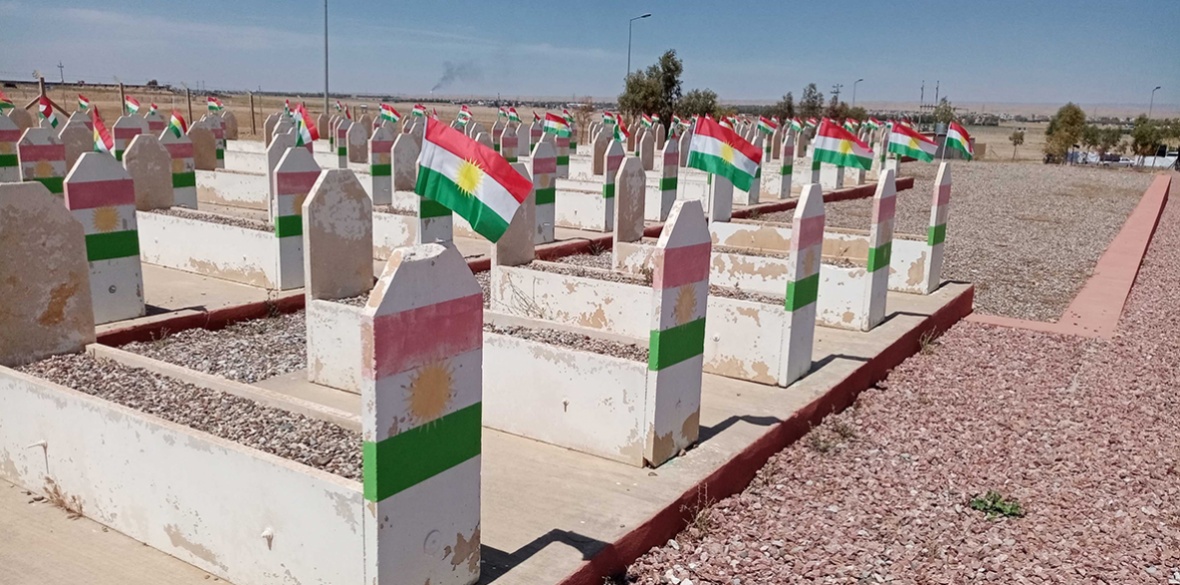This is the last article you can read this month
You can read more article this month
You can read more articles this month
Sorry your limit is up for this month
Reset on:
Please help support the Morning Star by subscribing here
by Steve Sweeney
in Kalar, Iraqi Kurdistan
THE genocide of the Kurdish people must be recognised as one of the worst crimes against humanity, a senior Iraqi Kurdish official told the Morning Star today.
As Kurds and others marked the 33rd anniversary of the Anfal campaign by former Iraqi dictator Saddam Hussein’s regime, Garmian regional governor Jalal Nuri said the atrocities of the late 1980s should not be forgotten.
On Wednesday, hundreds of survivors and relatives of the 182,000 Kurds who were killed in the most cruel and brutal way by Iraqi forces gathered to honour the memory of their loved ones at a ceremony organised by Anfal survivors’ organisations.
They vowed to continue the struggle for justice and asked the world to recognise the atrocities as a genocide.
Mahmud Bakhtyar was just three years old when he saw his entire family executed as he hid from Iraqi soldiers in the village of Chawry in the Garmian district.
“Please tell the world our story,” he told the Morning Star tearfully. “Help us get the Anfal recognised as genocide and help us to find our missing relatives."
Many of those killed were forced to dig their own graves and blindfolded before being shot with their arms tied behind their backs. Some were buried alive and many others remain missing, with efforts to find their bodies described by survivors as “lukewarm.”
Just three countries recognise the Anfal campaign, which took place in eight stages between 1986 and 1988, as a genocide: Britain, Norway and South Korea.
Wahab Ahmed, who lost his mother, father, three sisters and three brothers, was one of those who discovered a mass grave where 172 people from his village were buried.
He survived because he was staying with his uncle at the time in the town of Tuz, where he was a student.
But Mr Ahmed was adamant that while Britain and the US were among those that bore responsibility for backing Saddam’s Ba’athist regime with arms and political support, Kurdish collaborators were equallly culpable.
“The jash, as we call them, betrayed our people. They gave away peshmerga positions, told the Iraqis about the movement of villagers, led soldiers to where people were hiding and committed crimes against their own people,” he said.
He laughed when asked whether they had been held accountable for their actions.
“No, they are generals in the peshmerga forces of the Kurdistan Democratic Party and Patriotic Union of Kurdistan,” he alleged. “They are protected and living in palaces, while we live as paupers.”
Aram Mstafa said he hoped that the wounds of the Anfal would heal one day and the Kurdish people could have at least some semblance of justice.
“The Anfal is a genocide that has never ended,” he said. “It affected my parents, it affected me and it affects my children.”











